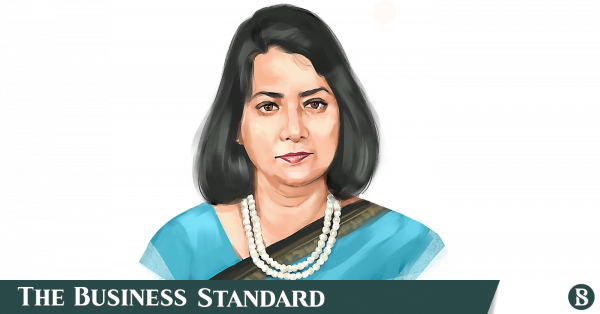- Capital market needs institutional, administrative, legal reforms
- NBR reform is critical – existing barriers must be removed
- Effective banking reform could lower NPLs, interest rates
- Fragmented reform efforts won’t work
To ensure political and economic stability in the country, the government now must announce a specific date for the upcoming national elections and implement coordinated reforms across key economic sectors, according to the Centre for Policy Dialogue (CPD).
During the release of CPD’s third review of Bangladesh’s economy in FY2024-25 at its office in the capital today (27 May), CPD Executive Director Dr Fahmida Khatun stressed that without political stability, investment will stall, which in turn will hamper job creation and economic growth.
“If investments don’t come, both formal and informal employment opportunities will shrink. This will lead to rising poverty and inequality – a vicious cycle,” she warned.
Noting that the interim government has already completed nine months in office, Fahmida said it is now reasonable to announce a specific date for the next election – be it in December, January, February, or March.
“Uncertainty is disliked by economic players such as businesses and investors. A clear election timeline would help reduce that instability,” she added.
CPD Distinguished Fellow Dr Mustafizur Rahman echoed the concerns, saying uncertainty over elections has dampened both domestic and foreign investment sentiment.
He, however, cautioned that investor confidence will not return even after the election unless pre-election reforms are undertaken, particularly strengthening the Bangladesh Petroleum Exploration and Production Company Limited (Bapex) to ease gas crisis, implementing the National Single Window system, and enforcing the logistics policy.
Fahmida said while the government has taken reform initiatives in various sectors, these efforts have been fragmented. The government should make a firm commitment to comprehensive reforms and implement them effectively.
For stability, control inflation
To ensure economic stability, control inflation, and promote transparency and accountability in the capital market, banking, and revenue sectors, institutional, administrative, and legal reforms are essential, she said.
In particular, she emphasised the need to remove existing barriers to reforming the National Board of Revenue (NBR) and to implement those reforms effectively.
“We are walking when it comes to reforms – but now we need to run,” she said.
According to CPD, fragmented reforms fail to deliver the desired outcomes.
If banking sector reforms are properly implemented, non-performing loans will decline. As a result, interest rates will fall, benefiting the economy as a whole.
“In the upcoming fiscal year, the focus should be on strengthening institutions, improving governance frameworks and ensuring transparency and accountability in policy implementation. Only with visible and bold reforms can Bangladesh’s economy build resilience, attract investment, and sustain inclusive growth in the years ahead,” Fahmida added.
Investment stagnation, budget concerns
She said despite rising exports, investment in the industrial sector remains low, noting a 23.6% drop in capital machinery imports during July-March compared to the same period last year. While back-to-back LCs have increased, LCs for capital machinery are declining.
Mustafizur Rahman added that factories are relying on existing production capacity rather than making new investments.
He also criticised the proposed scope to legalise undisclosed income in the upcoming budget, calling it economically unsound, morally unjustifiable, and politically unacceptable. Instead, he urged reforms to prevent the creation of black money.
Providing dearness allowance to government employees would further increase inflationary pressure on those working in the private and informal sectors, according to CPD.
To protect private sector workers, CPD proposed offering tax rebates and other benefits in the upcoming budget.
Fahmida Khatun said allocating Tk7,000 crore for dearness allowance would not only raise government expenditure but also fuel inflation.
“If the government decides to grant this allowance to appease public servants, it should also extend tax rebates and other support to those outside government employment,” she added.
Inflation, power crisis, and external pressures
According to CPD, the government’s target of bringing inflation down to 6.5% in the next fiscal year is unlikely to be achieved.
“Based on an analysis of inflation trends from 2012 to 2025, we believe reducing inflation to 6.5% next year is not feasible,” Fahmida said.
She noted that inflation may ease between May this year and February next year. However, it is likely to rise again from March to June due to seasonal factors, such as reduced agricultural supply and increased demand during Ramadan.
CPD also projected a revenue shortfall of Tk105,000 crore in the current fiscal year, and the IMF condition of increasing revenue collection by 0.5% of GDP annually is unlikely to be met.
According to CPD, urban areas are facing 1-4 hours of daily load-shedding, with rural areas worse off. Prioritising gas supply to power plants has reduced industrial supply, forcing factories to operate at 40-50% capacity, with some shutting down.
Fahmida Khatun warned that US-imposed tariffs could hurt Bangladesh’s exports. A proposed 5% tax on remittances from the US would raise sending costs by 9%, adding a $460 million burden. She urged serious discussions under the Ticfa framework to address these concerns.
She also cautioned that increased high-interest borrowing from banks and savings tools will strain future budgets and advised shifting the focus to external borrowing.


